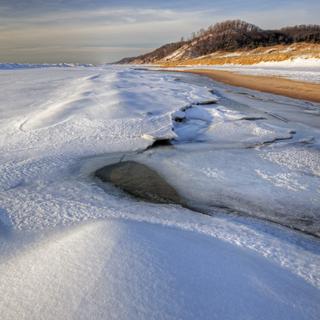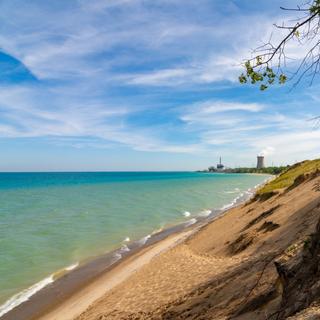Battle Creek, MI weather and climate in 2025
Day
29 °C
Night
16 °C
Sea
20 °C
Precipitation
90 mm
in month
Rainy days
10 days
in month
Daylight
15 hours
average
Sunshine
10 hours
average
Humidity
70 %
Weather charts for Battle Creek, MI
Find more destinations like this
Closest destinations for Battle Creek, MI
Closest cities for Battle Creek, MI
Weather overview for Battle Creek, MI
Weather overview
With four distinct seasons, Battle Creek offers a wide range of weather conditions throughout the year. January starts with chilly temperatures which are slowly replaced by the warmth of spring as the year progresses. Summers can be warm and pleasant with the mercury reaching its peak, while autumn ushers in a cooler, more comfortable climate. In the winter months, the city is a wonderland of snow. The wet days are fairly consistent throughout the year, with the highest precipitation occurring in summer months. Whether it's the cold, snow-covered days or the warm, sun-drenched afternoons, Battle Creek's weather is as dynamic as it is predictable.
January weather
January in Battle Creek greets you with a cold embrace. Nights can be particularly chilly with an average low of -9 °C (16 °F), while daytime highs rarely peak above a freezing 0 °C (31 °F). Precipitation is moderate with approximately 46 mm (1.83 in) of snowfall and a total of 13 experiencing some form of precipitation.
February weather
As we venture into February, the climate in Battle Creek remains frosty. Night temperatures linger around -8 °C (18 °F), while days are still quite cold with an average maximum of 2 °C (35 °F). On the brighter side, the relatively low wind speed of 4 lessens the bite of winter.
March weather
March signals the beginning of a thaw with daytime temperatures climbing to 7 °C (45 °F), but don't be fooled; nights are still cold at around -3 °C (26 °F). Increased rainfall replaces some of the snow, with 58 mm (2.27 in) expected to fall over 11.
April weather
April in Battle Creek welcomes spring with open arms. Daytime temperatures are pleasant at 15 °C (59 °F), while nighttime lows are a cool 3 °C (37 °F). The winds pick up slightly, making the 81 mm (3.17 in) of rainfall over 12 feel a bit more chilling.
May weather
May offers a warm embrace with the average high reaching 21 °C (70 °F), signifying the approach of summer. Nights are much warmer too, at 8 °C (47 °F). In Battle Creek, rainfall increases, with about 102 mm (4.01 in) of precipitation shared over 12.
June weather
Battle Creek's June sky is typically clear, providing an average of 10 hours of sunshine. Days are comfortably warm, peaking at 27 °C (80 °F), with night temperatures averaging 14 °C (57 °F). Rainfall remains high at 89 mm (3.52 in) over 11.
July weather
July offers the peak of summer with the temperature hitting a high of 29 °C (83 °F) during the day, and a balmy 16 °C (61 °F) at night. The wind slows to a gentle 3, and the city sees around 90 mm (3.54 in) of rainfall over 10.
August weather
August remains hot in Battle Creek, with an average high of 27 °C (81 °F), though nights offer some relief at 15 °C (60 °F). August is slightly more humid with 74 %, making the heat feel more intense. The city still encounters rainfall, with 92 mm (3.62 in) expected over 10.
September weather
The onset of September sees a drop in the daytime high to 23 °C (74 °F) while nights become cooler at 11 °C (52 °F). Battle Creek experiences a decrease in sunshine to about 7 hours and observes 92 mm (3.63 in) of rainfall over 10.
October weather
October welcomes the heart of fall with varying temperatures; a high of 16 °C (61 °F) and a cooler average low of 5 °C (41 °F). The wind picks up again at 3, and Battle Creek registers 80 mm (3.17 in) of precipitation over 11.
November weather
November's chill becomes more pronounced in Battle Creek with daytime highs of about 9 °C (48 °F) and night temperatures dipping to just a tad above freezing at 0 °C (32 °F). The city sees 75 mm (2.96 in) of rainfall, mostly as snow later in the month, spread out over 12.
December weather
December in Battle Creek epitomizes winter with cold days averaging 2 °C (35 °F) and nights dropping to a frigid -6 °C (22 °F). Expect around 62 mm (2.46 in) of precipitation, likely in the form of snow, over 13.
FAQs
How many layers of clothing are appropriate for Battle Creek in January?
In the bitterly cold January of Battle Creek, donning multiple layers is imperative for staying warm. A thermal base layer, a fleece or wool mid-layer, and a well-insulated, windproof outer layer should serve well.
Is February in Battle Creek still snowy?
Yes, February still blankets Battle Creek with snow, expecting around 44 mm (1.73 in) of snowfall this month and a wet day count of 10.
Can I start wearing light jackets in Battle Creek by March?
With a rise in daytime temperatures, a light jacket might suffice during the warmest part of the day, but remember that early mornings and nights will still require heavier clothing.
What is the best attire for outdoor activities in Battle Creek during April?
In April, layered attire remains a good choice for Battle Creek's spring weather. A waterproof and wind-resistant jacket will be handy for the sporadic showers.
Do we need to water the garden frequently in Battle Creek during May?
With May's generous rain averaging over 102 mm (4.01 in) for the month, gardens in Battle Creek may not require frequent watering, but keep an eye on those drier days in between the showers.
What is the likelihood of experiencing a thunderstorm in Battle Creek during June?
Thunderstorms are indeed part of the June weather scene in Battle Creek, accompanying the warm and rain-prone climate.
Is July typically the hottest month in Battle Creek?
Absolutely, July stands as the hottest month in Battle Creek, so expect plenty of warm and sunny days ahead.
Does Battle Creek experience a drop in temperature during the night in August?
Indeed, while days in August can be hot, the nights cool down to a more comfortable 15 °C (60 °F), which can feel quite refreshing.
As summer ends, what weather changes are noticeable in Battle Creek during September?
September brings a discernible transition from summer to fall in Battle Creek, with temperatures descending and the leaves beginning to change color.
Does October in Battle Creek have many rainy days?
October in Battle Creek offers a fair number of wet days at 11, typical for this time of year with intermittent rain.
How quickly does it get cold in Battle Creek during November?
The drop in temperature is swift in Battle Creek throughout November, transitioning from the mildness of fall to the cold edge of winter.
What type of winter gear is necessary for December in Battle Creek?
Warm winter gear is essential in December, including insulated boots, a heavy jacket, gloves, and a hat, to comfortably navigate the snow-covered landscape of Battle Creek.
We make the most from 40 years of historical weather data to predict the best weather conditions.
Deciding on where to go for a holiday is hard sometimes. Get inspired by the most popular destinations.
We aggregate data from combining multiple weather sources to ensure accuracy of the highest order.







